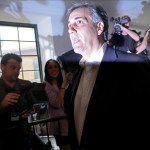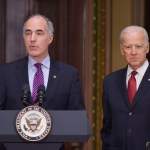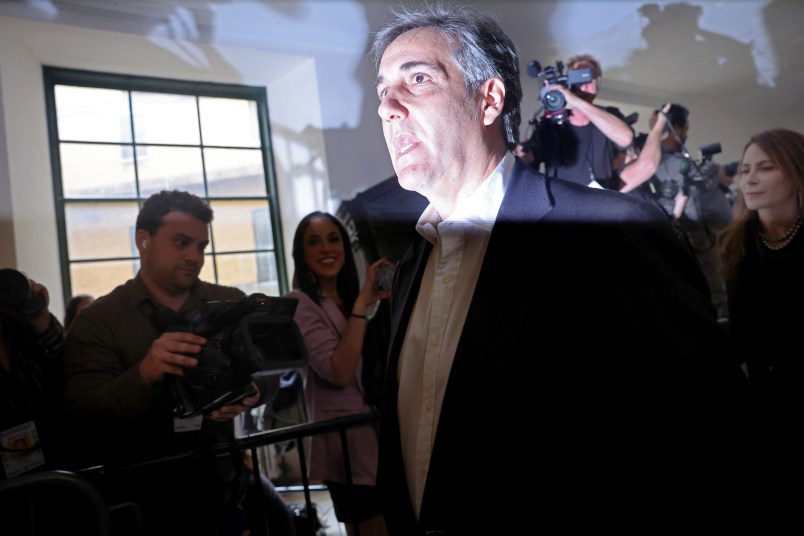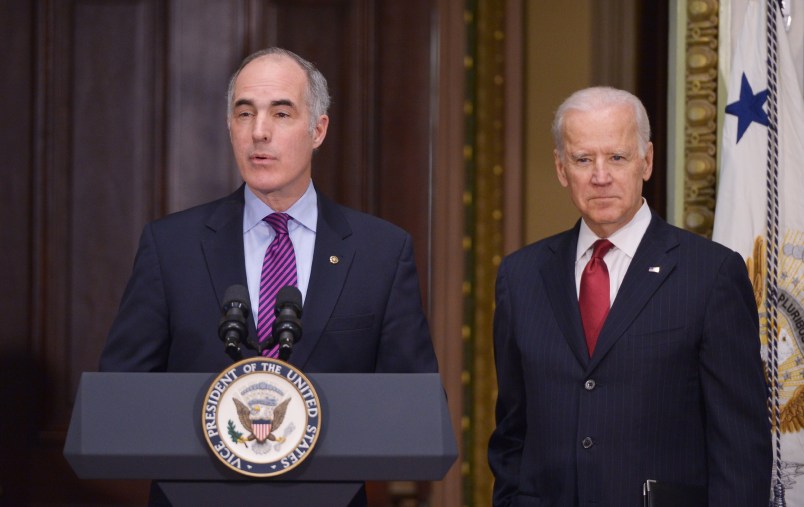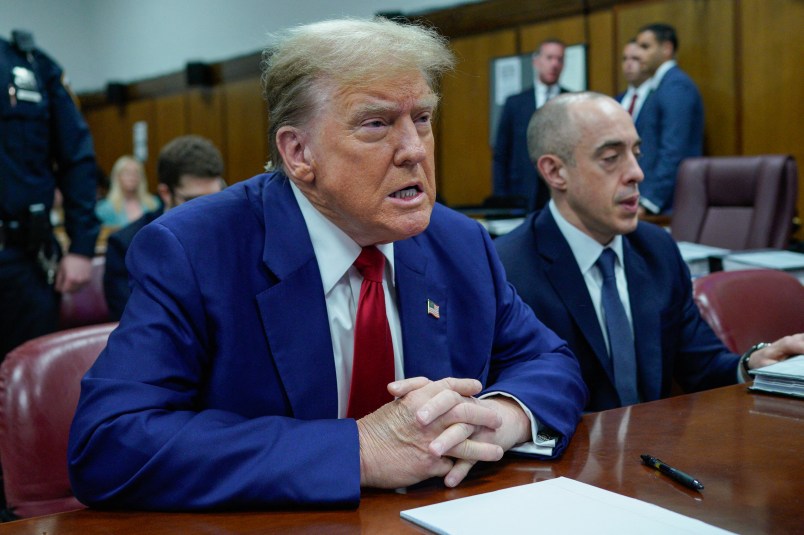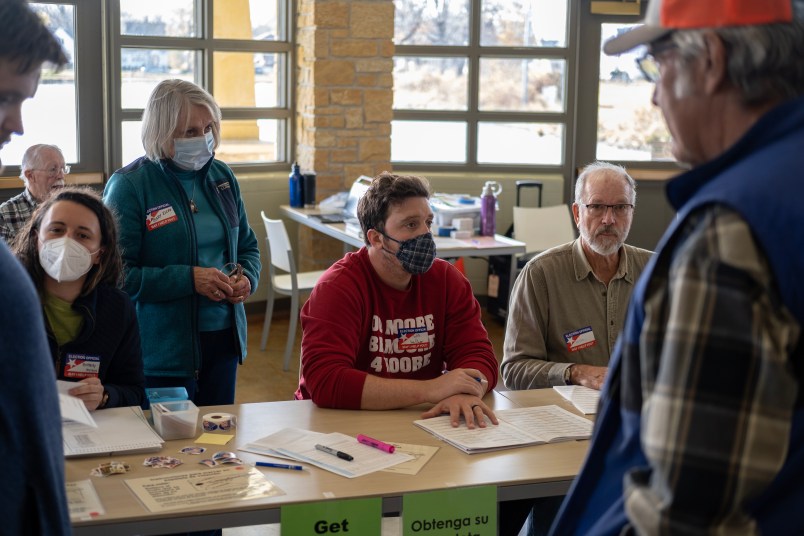Below is the complaint filed by Richard Miniter against the Washington Times, provided by Miniter’s attorney, Larry Klayman:
UNITED STATES DISTRICT COURT
FOR THE DISTRICT OF COLUMBIA
__________________________________
)
RICHARD MINITER, )
)
Plaintiff, )
)
v. ) Civil Action No.
)
SUN MYUNG MOON, )
)
PRESTON MOON, )
)
UNIFICATION CHURCH INTERNATIONAL )
)
ONE UP ENTERPRISES, INC. )
)
THE WASHINGTON TIMES, )
)
NEWS WORLD COMMUNICATIONS LLC OF )
DELAWARE )
)
NEWS WORLD COMMUNICATIONS, INC. )
)
JONATHAN SLEVIN, )
)
SONYA JENKINS, )
)
BETH WOLFFE, )
)
THE WOLFFE LAW FIRM, )
)
Defendant )
__________________________________
VERIFIED COMPLAINT
Plaintiff, Richard Miniter (“Miniter”), hereby files this Verified Complaint, by and through the undersigned counsel, and alleges as follows:
JURISDICTION AND VENUE
1. Jurisdiction lies under diversity of citizenship, 28 U.S.C. 1332, and the Lanham Act, 28 U.S.C. 1125 et seq. This is a case or controversy which exceeds $75,000 in damages.
2. Venue lies in this district as the case or controversy arose in this district, and most of the defendants reside or engage in business in this district. 28 U.S.C. 1391.
THE PARTIES
3. Plaintiff, Miniter, is an award-winning journalist and author, who at all material times resided in Arlington, Virginia, but worked in the District of the Columbia for the Defendants and their agents.
4. Defendant, Sun Myung Moon, is the founder and “Supreme Leader” of Defendant Unification Church International (“UCI”), and owns and operates the other Defendants: The Washington Times (“Times”), News World Communications LLC of Delaware and News World Communications, Inc. (“News World”), and One Up Enterprises, Inc. (“One Up”). These business entities are the alter-egos and/or money-laundering fronts of the Supreme Leader himself and in effect function as one entity. (Defendant, One Up is, according to published reports, the conduit for funneling overseas cash into and out of dozens of entities in the United States.)
5. Sun Myung Moon claims publicly to be the Messiah (the successor to Jesus Christ), is referred to as “True Father” by employees of the Defendant Times who are also members of the Unification Church, and he is known for conducting religious rituals where he marries thousands of previously unacquainted individuals at a time. He has used his ownership of the Times to pursue his religious, political, and criminal agenda. Indeed, Sun Myung Moon has been previously convicted for Federal tax evasion and has served time in a U.S. penitentiary.
6. Defendant, Preston Moon, is one of the sons of Defendant Sun Myung Moon, and is currently Chairman of Defendant News World Corporation, which is the parent holding company of Defendant Times, and effectively runs the other named corporate entities. Preston Moon is the agent of and carries out the orders of his father, Sun Myung Moon, who controlled all of the corporate entities at all material times.
7. Defendant, Jonathan Slevin, is currently Acting President and Publisher of Defendant Times.
8. Defendant, Sonya Jenkins, is Vice President of Human Resources for Defendant Times.
9. Defendant, Beth Wolffe, is the 100% owner and alter-ego of Defendant The Wolffe Law Firm, which at a minimum represents Defendant Times, and she and her law firm have at all material times acted outside of the law, concocted the schemes alleged herein, and counseled, advised, furthered and personally assisted the other Defendants, each and every one of them, in perpetrating the actionable conduct alleged in this Verified Complaint.
10. Defendant Wolffe also aided and abetted the other Defendants’ fraudulent plan to dissipate assets of the corporation to attempt to evade any eventual judgment enforcement.
THE FACTS
11. Plaintiff Miniter has 19 years experience as a reporter, editor and writer. Miniter worked for major newspapers on two continents, and reported from war zones in Iraq, Sudan, and Burma. Miniter has been an editorial page writer for the Wall Street Journal Europe in Brussels, a member of the investigative team of The Sunday Times in London, and an Editorial Page Editor and Vice President of Opinion at The Washington Times.
12. Miniter is the author of four (4) books, including two New York Times Best-Sellers. These books have been translated into Chinese, Japanese, and Hebrew, among other languages.
13. Miniter has been published in The New York Times, The Wall Street Journal, The Washington Post, The Christian Science Monitor, among other newspapers, and in national magazines including The Atlantic Monthly, Reader’s Digest, The New Republic and National Review. His books and articles have been used in curricula in various colleges and universities and have been widely cited by other publications (ranging from Forbes to Salon.com), and television programs (including NBC’s “Meet the Press”) as well as national radio programs (ranging from Rush Limbaugh to NPR) and online news sources.
14. He is a frequent guest on television and radio networks, both American and foreign. He has appeared on CNN, C-SPAN, Fox News Channel, and MSNBC as well as foreign outlets including the Australian Broadcasting Company, BBC, CBC (Canada), and RAI (Italy), among others. At one time or another he has appeared on every top-ten nationally syndicated talk radio program and has logged some 1,000 radio appearances since 2001.
15. He has given speeches all over the world, at venues ranging from The World Journalism Institute in New York, The Hong Kong Foreign Correspondents Club, The Liberal Club in London, The Royal Military College of Belgium, and The European Parliament in Brussels, among others.
16. He has won a number of prestigious journalism awards including The Felix Morley Prize, The National Press Club’s Award for Consumer Journalism, and the Grand Prize from the International Consortium of Investigative Journalists.
17. Based on his experience and expertise, he was approached about employment by John Solomon, the Executive Editor of The Washington Times, in March 2008.
While a Consultant of The Washington Times
18. In April 2008 he met with The Washington Times’ then-President and then-Publisher Thomas McDevitt.
19. At McDevitt’s request he researched and wrote three (3) detailed memos outlining his ideas for transforming the Washington Times’ editorial and opinion pages, over the spring and summer of 2008. McDevitt and Miniter met a number of times over that period.
20. On or about September 30, 2008 McDevitt invited Miniter to meet Preston Moon, whom Miniter was told ran News World Communications, the parent company of The Washington Times. They met in the “Founder’s Room” of the Washington Times headquarters. After a lengthy discussion relating to the newspaper industry and world affairs, Moon personally approved McDevitt’s proposal to hire Miniter.
21. Preston Moon is one of some 13 children of Rev. Sun Myung Moon, the religious leader who founded The Washington Times in 1982.
22. Preston Moon did not indicate to Miniter that, to keep his position and advance, he would have to take part in religious festivals or rituals. Indeed, Miniter was repeatedly falsely assured by Moon, and by others, that newspaper editors enjoyed “autonomy” and “independence” from the Unification Church.
23. On or about October 15, 2008, Miniter was asked to join The Washington Times as a consultant to McDevitt and charged with developing a detailed turn-around plan for the Commentary, Editorial and Op-Ed pages of The Washington Times.
24. Under a consulting contract, agreement and understanding with the Washington Times, Miniter was paid $15,000.00 a month and given permission to spend up to $10,000.00 in business-related expenses. As a consultant, Miniter was tasked with comparing the Washington Times’ operations with the best practices of competing papers. In that capacity, Miniter interviewed most of the executives and managers at the Times. Miniter wrote an approximately 90-page “turn-around plan” detailing numerous proposed changes. The final report was submitted in the first week of January, 2009. In the next phase of his consultancy, and later as an employee, Miniter worked with McDevitt to implement the plan.
25. Miniter’s consulting contract ran from October 20, 2008 to January 20, 2009 and, in January 2009, was extended to February 28, 2009.
26. At all material times, Miniter was told by Washington Times senior executives, including McDevitt, that his performance was excellent.
The “Business Meeting” in New York City
27. While a consultant who was being considered for an employment position, on or about January 31, 2009, McDevitt told Miniter he would need to go on a “business trip” with him to Manhattan. Miniter was told that all his expenses, travel, meals and other incidentals were to be reimbursed by the newspaper and they later were.
28. McDevitt told Miniter that “It would be ‘good’ for you to go.” Miniter took this to mean that if he didn’t go, it would count negatively against his prospects at The Washington Times and of being offered permanent executive employment there.
29. Miniter knew that McDevitt was a member of the Unification Church and that McDevitt’s religion was important to him. A large, Mao-like portrait of Rev. Moon hung above McDevitt’s desk and a billboard-sized Korean-language calligraphy, written by Rev. Moon, hung in the executive conference room. While these Moon relics were only seen by senior executives, Miniter knew that they had personal significance to McDevitt. At first, Miniter considered this artwork to be a sign of personal and private religious devotion, like an Advent calendar tacked to someone’s cubicle, and not a sign that the Church would interfere in the “editorial independence” that editors were promised.
30. Based on Miniter’s experience and knowledge of the industry, Miniter knew that the position of Editorial Page Editor of a major daily newspaper is among the most coveted in American journalism. Editorial Page Editors at major national dailies typically stay in their position for many years and therefore these positions open up very rarely. Based on Miniter’s experience and knowledge, he knew that a similar position might not become available for many years.
31. At the time, there were only two significant editorial pages in the United States that would hire a center-right Editorial Page Editor to espouse a free-market editorial philosophy: The Wall Street Journal and The Washington Times. Miniter knew that the Wall Street Journal had hired Paul Gigot as its Editorial Page Editor in September 2001, that he remains in that position, and that he would likely be in that position for another 15 years or more. (Gigot’s predecessor, Robert L. Bartley, had been Editorial Page Editor for 29 years.) At age 42 Miniter knew that he only had about 23 years left in the ordinary course of his career. Therefore, Miniter knew that if he ever wanted to lead an editorial page in his career, this was, most likely, his one opportunity.
32. En route to Manhattan, McDevitt explained to Miniter that Miniter would be staying at the New Yorker Hotel, which McDevitt told Miniter was owned by the Unification Church.
33. In addition, while en route, Miniter was told that he would be attending both a “peace festival” and a religious service.
34. Once at the hotel, Miniter met a number of other Washington Times employees, who were clearly excited that “Father” would be visiting them on Sunday.
35. “Father” was Rev. Sun Myung Moon himself. He is also referred to as “True Father” on his website, and, along with his wife, as “True Parents.”
36. Miniter was told that the weekend “peace festival” and religious service were happening on what Moon’s followers considered an auspicious date: the ninetieth birthday of Rev. Moon.
37. Rev. Moon would actually be 89 years old on that birthday, according to the Western calendar. But, Miniter was told, the organizers and The Washington Times employees that Miniter met were using a traditional Korean calendar, which counts a baby at birth as one year old.
38. At the religious service that Miniter attended with McDevitt and Washington Times Vice President Frank Grow, among others, Miniter noticed that Preston Moon, who ran the parent company News World Communications which wholly owns The Washington Times, took the stage alongside his father, Rev. Moon.
39. Throughout the weekend and especially at the religious service, Miniter felt extremely uncomfortable, as if he was being coerced to participate in their religion. Miniter was made to feel as if he had no choice.
40. However, believing the repeated assurances of editorial independence, Miniter accepted the offer of employment and started work in the coveted and prestigious position of Editorial Page Editor and Vice President of Opinion on or about February 28, 2009.
The Decision to Hire Miniter
41. While Miniter was serving as a consultant, The Times ran national newspaper advertisements for the position of Editorial Page Editor and interviewed a number of candidates from around the country.
42. Miniter was also interviewed by McDevitt and by Vice President of Human Resources, Sonya Jenkins.
43. As was true of other candidates, Miniter went through every step in The Washington Times job interview process. He passed a drug test at an outside lab designated by the newspaper. He completed a job application and was interviewed several times by various executives. In addition, the paper conducted an extensive background check of Miniter, led by a New York-based employment firm, contacting nearly everyone with whom he had worked or been associated with over the past twenty years. That firm also conducted a check of criminal records in all 50 states and examined Miniter’s financial history. One colleague from The Wall Street Journal asked Miniter: “Are you going to work for the CIA or something?” This underscores how thoroughly Miniter was vetted by The Washington Times.
44. In addition, Miniter was interviewed a number of times by an outside consultant who was retained by The Washington Times to evaluate the suitability and fit of prospective executives. That consultant performed an intensive psychological evaluation, which Miniter was assured was a normal part of the hiring process for senior executives. Part of this evaluation included a three-hour computerized test designed to reveal hidden psychological and behavioral factors.
45. Given Miniter’s superior performance as a consultant and the successful results of the thorough vetting process, Miniter was hired, on or about, February 28, 2009.
Events While an Employee of The Washington Times
46. Miniter’s employment contract, agreement and understanding provided that he would receive the titles of Editorial Page Editor and Vice President of Opinion with a salary of $225,000.00 per year plus a $5,000.00 signing bonus. In addition, Miniter was offered a package of benefits including health coverage, dental coverage, health-club membership, an executive-retirement plan, paid vacation and other leave, and other substantial benefits.
47. The Washington Times published a front-page story headlined “Miniter Named to Lead Editorial Pages at Times” on March 9, 2009. In that article, McDevitt is quoted: “Richard is one of those rare journalists with ironclad credibility, impeccable taste and good cheer. He is also fearless. Richard has a grasp on the dynamics of national and world events, which is rare these days.” He continued: “We want the editorial pages to lead the public discourse on conservative values with vitality and insight, with fairness and guts. America is in a tough situation; the world is in a tough situation. These times and our readers demand clear thinking, and Richard will provide it.”
48. Based on this published statement and other public statements and representations made directly to Miniter, as well as contractual commitments, Miniter believed his position to be secure and permanent and relied upon this in his endeavors at The Washington Times.
49. Miniter was paid according to his contract, agreement and understanding and received all of the benefits it established.
50. Miniter’s name was prominently displayed on the masthead of The Washington Times as Editorial Page Editor and Vice President of Opinion each day from March 2009 up to and including at least November 23, 2009.
51. The Times paid for the production of business cards and office name plates displaying Miniter’s name and full title and thus traded off, and benefitted from, Miniter’s name and reputation in making sales of the newspapers and burnishing its brand.
52. Miniter’s performance as Editorial Page Editor and Vice President of Opinion from March 2009 through June 2009 was outstanding by every measure: Minter’s department was spending less than budgeted while online readership of the Opinion section had more than doubled in that short period. In addition, Miniter redesigned the layout of the opinion pages, both in print and online. Miniter’s new design saved the paper more than $187,000 per year in printing costs alone. Miniter made additional savings in syndication costs, saving the paper more than $50,000 per year. Miniter established new editing and quality-control procedures. Miniter forged alliances with new outside contributors to improve the quality and timeliness of articles. He recruited a new team of writers and editors, who were veterans of The Wall Street Journal’s editorial page, USA Today’s editorial page, The Washington Examiner’s editorial page, National Review and other prominent, well-established publications. All of these improvements remain in place today and the team Miniter assembled remains intact.
Heart and Health Issues
53. Shortly after being named to lead the editorial pages, Miniter suffered severe chest pains and was taken out of the offices of the Times on a stretcher and was hospitalized in the cardiac wing for more than five days. Those chest pains were diagnosed as heart-related.
54. After his return to work, Miniter told Vice President of Human Resources Sonya Jenkins that doctors had ordered numerous tests and that most likely he would need to be out of the office for part of some days on what Miniter’s doctors anticipated would be approximately 30-40 visits to specialists and medical testing facilities over the next three months. In response, Jenkins said: “Tom’s not going to like that” referring to President and Publisher Tom McDevitt.
VP Jenkins’ Repeated Demands That Miniter Fraudulently Sign a Government Document and the Ensuing Retaliatory Investigations Stemming from Miniter’s Refusal to Sign
55. Throughout the spring of 2009, Jenkins repeatedly demanded that Miniter sign a government document attesting that her young son lived at Miniter’s house. In fact, Jenkins’ son did not live at Miniter’s house and never had. Indeed, Miniter had never met her son. Her stated reason for Miniter to fraudulently sign the form was that her son wanted to continue to attend Oakridge Elementary School in Arlington County, Virginia while she and her son had in fact moved to Prince Georges County, Maryland. Jenkins knew that Miniter lived near the Oakridge Elementary School. Miniter believed this request was improper, fraudulent and illegal and would expose him to criminal charges if he participated in this conspiracy to defraud the Arlington County government. Miniter rejected this illicit request, but Jenkins continued to demand that he sign the form and Miniter continued to refuse. This caused Miniter additional emotional and physical distress, including chest pain, headaches, and back and stomach pain. Based on the persistence of the request, Miniter came to believe that his refusal to participate with Jenkins’ scheme would open him up to retaliation.
56. During this period, Miniter sought out McDevitt in his office and complained about Jenkins’ persistent efforts over two months to get Miniter to sign this document and added that he considered this to be harassment and he feared retaliation from her. McDevitt exhaled loudly and said: “human beings.” McDevitt failed to intervene to stop Jenkins’ conduct.
57. On or about June 2009, Jenkins informed Miniter that she had gotten someone else to sign the form.
58. Within days, she used her power as Vice President of Human Resources to start an investigation into Miniter’s “management style.” In June 2009, Jenkins brought in an outside consultant to conduct what she called a “360” in which every employee who reported to Miniter was privately interviewed.
59. When the consultant’s report found a largely happy and well-functioning department, Miniter was pleased that his “management style” had been vindicated.
60. Less than two weeks later, Miniter was summoned to McDevitt’s office. Jenkins was present. McDevitt and Jenkins informed Miniter, with no explanation for the reasons or goals thereof, that the Times was launching a second investigation and Miniter was ordered to work from home. Miniter was told not to contact any of the employees in his department and was ordered to leave the building immediately. No cause or complaint was cited. In that meeting, Miniter asked why the company was launching a second investigation. Jenkins said she believed that Miniter’s presence in the Times building discouraged employees from voicing concerns. She said she would lead the second investigation personally. Miniter understood this as retaliation for his refusal to join Jenkins’ fraudulent scheme.
61. At that same meeting, Miniter reminded McDevitt that he had earlier complained about Jenkins’ campaign to force Miniter to comply with her fraudulent scheme. Miniter asked McDevitt if this second investigation struck him as retaliation for his refusal to join Jenkins’ scheme. McDevitt shrugged and failed to verbally respond.
The Washington Times’ Failure to Continue to Honor Miniter’s Contract
62. In the course of July and August 2009, McDevitt summoned Miniter to his offices several times. Jenkins was present in each of those encounters. Miniter was never given any clear indication of the cause for being asked to work at home, nor told when it would come to an end. Obviously, Miniter’s inability to contact his co-workers, including those who directly reported to him, was a significant hindrance imposed upon him to continue fulfilling his contractual role.
63. Since Miniter was still being paid as an employee and was still listed on the masthead and was under contract, he knew that he could not seek other employment. Yet Miniter could not perform his contractual role as Editorial Page Editor. Minter was trapped. During this period, Miniter experienced profound emotional distress and physical pain, including headaches, back pain, loss of sleep, weight gain and other maladies. Miniter was suffering at the thought that his job was in jeopardy, that his professional reputation could be ruined, and that his future ability to earn a living in his chosen profession would be sharply diminished. Based on Minter’s knowledge of the industry and his experience, Miniter knew that a three-month tenure as Editorial Page Editor would harm his reputation irreparably because it would be seen as suspiciously short and would signal that he must have engaged in some sort of shocking, improper conduct. Miniter knew he would be branded as unemployable.
64. In or about August and September 2009, the U.S. economy collapsed, forcing unprecedented government intervention and bailouts. Unemployment rates began a swift and steep upward climb. The hope of any potential for alternative employment was nonexistent. Miniter’s emotional distress deepened as a result of McDevitt’s, Jenkins’ and The Washington Times’ continuing and unrelenting harassment and damage to his reputation.
65. In or about September 2009, following a phone call from Jenkins, Miniter doubled over from chest pains. Fortunately, Miniter was with a medical professional who was able to give him nitroglycerin pills to save him. Miniter was later hospitalized at an Alexandria hospital.
66. In or about September 2009, Jenkins proposed a new contract which would pay Miniter substantially less and give him the “responsibilities” for finding advertisers for The Washington Times, which was completely incongruent with his career goals and expertise. While Miniter is an award-winning journalist and best-selling author, he has no experience in advertising and has not worked in that capacity as a professional. It bears mentioning that Miniter would never have engaged in employment with the Washington Times to begin with if his role was to be in the advertising department. Miniter took this to be further harassment because he has no experience in advertising and he did not warrant a cut in pay based on his performance.
67. On or about September 22, 2009 Miniter was notified by Jenkins that unless he agreed to the new contract his salary would stop. When Miniter reminded her that under the current contract he was entitled to pay, she said: “We disagree.”
68. Of particular importance is that, following the termination of several members of senior management (including but not limited to Douglas Joo the then-Chairman, McDevitt the then-Publisher and President, John Solomon the then-Executive Editor, and Keith Cooperrider the then-Chief Financial Officer), their names were subsequently removed from the masthead, while Miniter’s name was deliberately not removed. From as of about September 22, 2009 to the present, Miniter has received no salary from The Washington Times while his contract, which was previously being honored, remains in full force and effect and his name remained on the masthead up to November 23, 2009.
69. During this period, media reports from Politico.com and other outlets held Miniter up for ridicule and humiliated him for being “AWOL” from his job. These media outlets were being fed information by Times insiders. When contacted by the press, McDevitt and Jenkins refused to comment, let alone defend him, creating the false impression that he had done something wrong.
70. When other members of the Times’ executive team notified Miniter that these negative stories were planted by current Times employees, Miniter contacted Jenkins and asked for an internal investigation. Minter told her that such publicity was bad for him and for the paper. She responded that Tom [McDevitt] didn’t want to investigate. This refusal to investigate reinforced the accounts Miniter was told that senior management was behind the leaks or had sanctioned them, as part of an effort to force Miniter to quit and thereby void his employment contract.
71. Shortly thereafter, TalkingPointsMemo.com, an online news outlet, reported, citing a Washington Times spokesman: “Effective November 6, 2009, John Solomon has resigned his position as the Executive Editor of The Washington Times.”
72. Five (5) of the seven (7) members of The Washington Times executive team (including Miniter) are no longer with the company.
73. Shortly thereafter, the Times announced that it stopped making 401(k) payments for its employees.
74. All of the paper’s approximately 370 employees will soon be legally put on notice, per the 1989 WARN Act, that they could be legally laid off in 60 days, according to online and broadcast news reports.
75. Payments to vendors have stretched beyond the 120-day mark and at least one vendor has told Plaintiff that that they fear that they will not be paid at all.
76. The Washington Times has lost money for 27 straight years and The Washington Post has estimated those losses at $2 billion over that period.
77. Based on what Miniter learned in budget meetings, the paper relies on a roughly $40 million annual subsidy from the Unification Church and cannot survive without that subsidy, which is paid in weekly amounts. Of the slightly more than $70 million the Washington Times spends annually, less than $37 million comes from advertising and subscription revenue. In addition, the number of paid subscribers has been falling since July 2008 and advertising revenue is plunging as competition from the Washington Examiner and others intensifies.
78. Turmoil inside the Unification Church — between Preston Moon and his siblings — put that subsidy and the future of the paper in doubt, according to online reports.
79. The Washington Times announced plans to lay of more than 40 percent of its staff on December 2, 2009. The Times further announced on that date that half of its circulation would henceforth be provided on a non-revenue basis, as explained by Acting President and Publisher Jonathan Slevin to Editor and Publisher Magazine. Slevin said will sharply reduce the Times’ operating revenue even further.
80. Based on The Washington Times’ economic condition, the departure of many of its key executives, the non-payment of its debts, the reductions in paid subscriptions and workforce, and its apparent insolvent state, the very international nature of the Unification Church, and the South Korean residency of many of the newspaper’s principals, it appears likely that The Washington Times could close suddenly and easily move its assets outside the Unites States or otherwise hide or dissipate them.
81. Given Miniter’s experience on the seven-member executive team, he is aware of still more irregularities with The Washington Times, its management and its owners.
COUNT I – BREACH OF CONTRACT
82. Plaintiff realleges paragraphs 1 to 81 of this Verified Complaint as if fully incorporated into this Count.
83. Defendants, Times and News World, in concert with the other Defendants, breached their contractual commitments to Miniter, causing actual and compensatory damage in an amount to be determined at trial.
COUNT II – PROMISSORY ESTOPPEL
84. Plaintiff realleges paragraphs 1 to 81 of this Verified Complaint as if fully incorporated into this Count.
85. Plaintiff relied upon the material representations of Defendants, each and every one of them, that he had an employment contract, agreement and understanding, which constructively and/or actually continues in full force and effect up to the present, as evidenced by Plaintiff being represented as the Editorial Page Editor and Vice President of Opinion on the published masthead of the November 23, 2009 edition of the Times.
86. Plaintiff relied upon these representations to his detriment, and has suffered actual and compensatory damages caused by each and every one of the Defendants, acting in concert, in an amount to be determined at trial.
COUNT III – INTENTIONAL INFLICTION OF EMOTIONAL DISTRESS
87. Plaintiff realleges paragraphs 1 to 81 of this Verified Complaint as if fully incorporated into this Count.
88. The actions of Defendants, each and every one of them, were intentional, malicious, and reckless, and were designed to inflict great emotional distress upon Plaintiff. These actions were perpetrated by the Defendants in concert, and resulted in emotional and physical injury, and nearly death, including but not limited to, life-threatening ailments such as severe heart problems, migraine headaches, back pain, and other life-changing medical problems.
89. Defendants, each and every one of them, acting in concert, are jointly and severally liable for actual, compensatory and punitive damages in excess of 10 million dollars, attorneys’ fees and costs, and such other relief as this Court may deem just and proper.
COUNT IV – FALSE LIGHT
90. Plaintiff realleges paragraphs 1 to 81 of this Verified Complaint as if fully incorporated into this Count.
91. Defendants, each and every one of them, acting in concert, published false statements, misleading statements, and other statements which impugned the reputation of the Plaintiff, and held him out to ridicule in the community, professionally and personally, in a highly offensive light to a reasonable person.
92. Plaintiff has been damaged by the concerted acts of Defendants, each and every one of them, and prays for actual, compensatory and punitive damages in excess of 10 million dollars, attorneys’ fees and costs, and such other relief as this Court may deem just and proper. Defendants are jointly and severally liable.
COUNT V – UNFAIR TRADE PRACTICES
93. Plaintiff realleges paragraphs 1 to 81 of this Verified Complaint as if fully incorporated into this Count.
94. Plaintiff’s name has been used in an unfair, misleading, false, fraudulent and improper manner, on the masthead of Defendants’ newspaper, to generate sales and enhance the reputation of the publication, while at the same time, Defendants have conspired to terminate Plaintiff’s employment, inflict intentional emotional distress, hold him out to the community in a false light, and carry out other concerted acts designed to harm and destroy Plaintiff. At all material times Plaintiff was not paid for his services and the use of his name.
95. Plaintiff has been damaged by the concerted acts of the Defendants, each and every one of them, and prays for actual, compensatory and punitive damages in excess of 10 million dollars, attorneys’ fees and costs, and such other relief as this Court may deem just and proper. Defendants are jointly and severally liable.
COUNT VI – LANHAM ACT
96. Plaintiff realleges paragraphs 1 to 81 of this Verified Complaint as if fully incorporated into this Count.
97. Defendants, each and every one of them, misused Plaintiff’s name on its masthead in a manner that constitutes false advertising under the Lanham Act at 28 U.S.C. 1125(b).
98. Plaintiff has been damaged by the concerted acts of the Defendants, each and every one of them, and prays for actual and compensatory damages, trebled, plus attorneys’ fees and costs, in an amount to be determined at trial. Defendants are jointly and severally liable.
PRAYER FOR PRELIMINARY AND PERMANENT INJUNCTIVE RELIEF
99. Plaintiff realleges paragraphs 1 to 81 of this Verified Complaint as if fully incorporated into this Count.
100. Defendants, each and every one of them, are either engaged in dissipating, moving, hiding, or secreting their assets, and it has been reported that they are in the process of quickly closing down The Washington Times to defraud creditors, employees and others. Plaintiff will suffer irreparable injury if there are not assets available to satisfy a judgment in this cause.
WHEREFORE, Plaintiff prays for preliminary and permanent injunctive relief enjoining Defendants from dissipating, moving, hiding, or secreting assets during the pendency of this litigation and any judgment enforcement, as well as destroying evidence. Plaintiff requests that his Emergency Motion for Preliminary Injunctive Relief be set for an evidentiary hearing on an emergency basis, at a status conference to be held forthwith, and that discovery be ordered to proceed forthwith.
Plaintiff demands trial by jury on all issues so triable.
Respectfully submitted,
_______________________
Larry Klayman, Esquire
D.C. Bar No.
The Klayman Law Firm
201 Massachusetts Avenue, N.E.
Suite C-2
Washington, DC 20002
Attorneys for Plaintiff
VERIFICATION
I, Richard Miniter, being over 18 years of age, based upon personal knowledge, hereby swear that the foregoing facts are true and correct.
SWORN TO UNDER PENALTY OF PERJURY
___________________________
Richard Miniter

